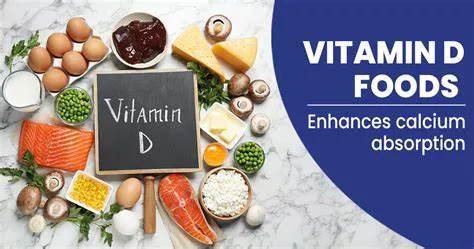Maintaining healthy blood pressure is crucial for overall cardiovascular health. However, certain vitamins, when consumed in excess or deficiency, can affect blood pressure levels. In this article, we delve into the relationship between vitamins and blood pressure, exploring which vitamins may contribute to elevated blood pressure and how to manage their intake for optimal heart health.
What Vitamins Raise Blood Pressure?
Vitamin D: Balancing Sunlight and Supplements
Vitamin D plays a vital role in calcium absorption, bone health, and immune function. While vitamin D deficiency is associated with various health concerns, including cardiovascular disease, excessive intake through supplements may have implications for blood pressure regulation.
Role and Impact:
Studies have shown that vitamin D deficiency is linked to higher blood pressure levels. Conversely, some research suggests that high doses of vitamin D supplements may lead to elevated blood pressure, although the mechanisms are not fully understood.
see also: What Causes Low Blood Pressure During Surgery?
Managing Intake:
Balancing sunlight exposure, dietary sources of vitamin D, and supplementation is key. Consulting with a healthcare provider can help determine appropriate vitamin D levels and supplementation strategies to avoid potential effects on blood pressure.
Vitamin B Complex: Niacin and Folate Considerations
The B-complex vitamins, including niacin (B3) and folate (B9), are essential for energy production, DNA synthesis, and red blood cell formation. While these vitamins are generally beneficial for cardiovascular health, certain considerations regarding blood pressure exist.
Role and Impact:
Niacin, when taken in high doses for cholesterol management, can sometimes lead to flushing and transient increases in blood pressure. Folate, on the other hand, is associated with lower blood pressure levels and is beneficial for heart health.
Managing Intake:
Careful monitoring of niacin supplementation is necessary to minimize potential blood pressure effects. Incorporating folate-rich foods, such as leafy greens and legumes, into the diet supports cardiovascular health without adversely impacting blood pressure.
Vitamin C: Antioxidant Benefits and Blood Pressure
Vitamin C is renowned for its antioxidant properties and role in immune function. While it is generally considered beneficial for cardiovascular health, high doses of vitamin C supplementation may influence blood pressure dynamics.
Role and Impact:
Vitamin C acts as an antioxidant, protecting against oxidative stress that can contribute to hypertension. However, excessive vitamin C intake, particularly from supplements, may lead to slight increases in blood pressure in some individuals.
Managing Intake:
Obtaining vitamin C from dietary sources, such as fruits and vegetables, is preferable to high-dose supplements. A balanced approach ensures antioxidant benefits without compromising blood pressure control.
Vitamin E: Antioxidant Effects and Blood Pressure Regulation
Vitamin E is another antioxidant vitamin known for its role in protecting cells from oxidative damage. While it is generally beneficial for cardiovascular health, its impact on blood pressure is nuanced.
Role and Impact:
Vitamin E’s antioxidant properties support vascular health and may contribute to maintaining normal blood pressure.
However, conflicting evidence exists regarding its direct influence on blood pressure regulation.
Managing Intake:
Obtaining vitamin E from dietary sources, such as nuts, seeds, and vegetable oils, is preferable to supplementation unless advised by a healthcare provider. Monitoring overall antioxidant intake helps maintain cardiovascular health while considering blood pressure effects.
Vitamin K: Coagulation and Cardiovascular Health
Vitamin K is essential for blood clotting and bone metabolism. Its subtypes, vitamin K1 and vitamin K2, have distinct roles in cardiovascular health, with vitamin K2 potentially influencing blood pressure regulation.
Role and Impact:
Vitamin K2, found in fermented foods and certain animal products, has been linked to lower blood pressure and reduced risk of cardiovascular events. However, more research is needed to fully understand its mechanisms and optimal intake levels.
Managing Intake:
Incorporating vitamin K-rich foods, such as leafy greens, fermented soybeans, and dairy products, supports overall cardiovascular health. Balancing vitamin K intake with other nutrients and lifestyle factors promotes optimal blood pressure control.
Other Considerations: Sodium, Potassium, and Magnesium
While vitamins play a role in blood pressure regulation, other nutrients also influence cardiovascular health. Sodium intake, potassium levels, and magnesium status are crucial factors to consider in managing blood pressure effectively.
Sodium:
Excessive sodium intake, commonly found in processed foods and restaurant meals, can contribute to high blood pressure.
Monitoring sodium intake and choosing low-sodium alternatives promote heart health.
Potassium:
Potassium-rich foods, such as bananas, potatoes, and leafy greens, help counterbalance sodium’s effects and support healthy blood pressure levels. Including potassium in a balanced diet is beneficial for cardiovascular health.
Magnesium:
Magnesium plays a role in muscle function, including the relaxation of blood vessels. Adequate magnesium intake, from sources like nuts, seeds, and whole grains, contributes to optimal blood pressure regulation.
Conclusion
Understanding the impact of vitamins on blood pressure underscores the importance of a balanced approach to nutrition and supplementation for cardiovascular health. While certain vitamins may influence blood pressure levels, moderation, variety, and overall dietary patterns play key roles in maintaining optimal heart health. Consulting with healthcare professionals for personalized guidance and monitoring ensures a holistic approach to managing blood pressure and promoting overall well-being.

